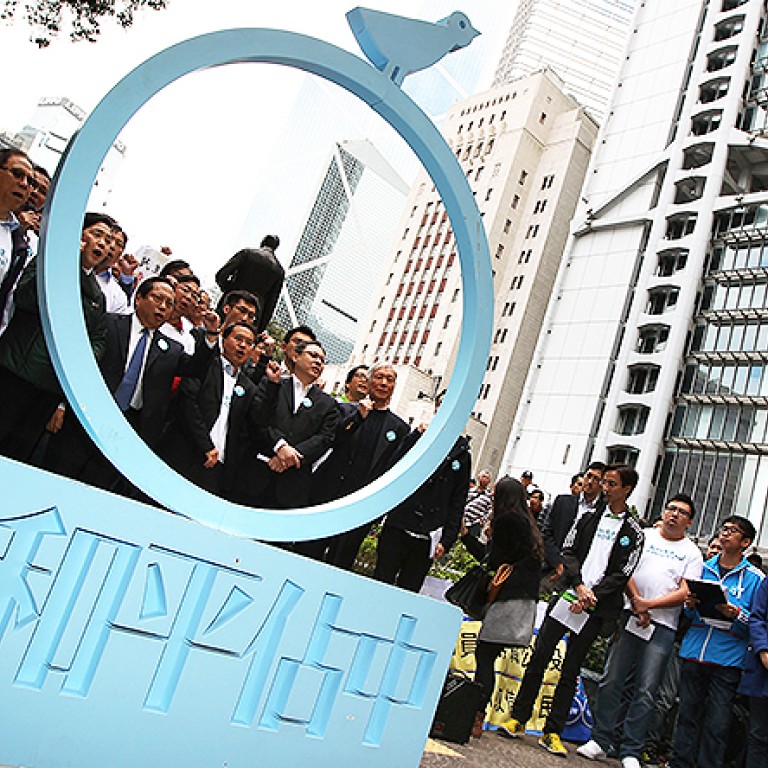
People Power radicals disrupt Democratic Party’s Occupy Central event
Democrats accuse People Power members of ‘fascist’ tactics as scuffles break out at party’s vow of support for civil disobedience campaign
The rift in the pro-democracy camp has widened, with Democrats accusing members of the radical People Power group of a "fascist" disruption of an event yesterday intended to support the Occupy Central movement.

Another talking point was the no-show of the founding chairman of the Democratic Party, Martin Lee Chu-ming, at the event in Statue Square, Central.
Party members took an oath promising to join the campaign to block the financial centre in July if the government fails to deliver an acceptable method to elect the chief executive in 2017.
Their oath was greeted with waves of slogans from 30 protesters who accused them of betraying Hongkongers by not pledging to demand public nomination of candidates.
Scuffles broke out soon after, during which party chairwoman Emily Lau Wai-hing and former chairman Albert Ho Chun-yan were hit on the head with various objects, including a clothes hanger. They were not injured and there were no arrests.
Shouting back amid the yelling, Lau said: "We warn the Chinese Communist [Party] not to go on the offensive like this."
Ho said: "There are many people who want to destroy Occupy Central. People opposed to Occupy Central and to democracy must be happy to see what happened today."
Ho said the party would not succumb to such "intimidating, threatening, uncivilised and fascist" behaviour. He did not promise to list public nomination as a prerequisite but said the bottom line was an absence of screening of candidates.
Ho was followed and booed by about 10 protesters when he walked back to his office in Des Voeux Road under police escort.
Martin Lee said he disagreed with the party's strategy.
"Public nomination is the most widely representative mode. There is no reason for it to be said to be an non-binding option," he said.
But Lee said he supported the oath-taking, although he was absent because he had another commitment.
Occupy co-organiser Dr Chan Kin-man, a sociologist at Chinese University, said he had wanted his movement to reintegrate the various fractions in the pan-democratic camp.
"Society wants more co-ordination between the radical and moderate sides," he said.
Political scientist Professor Ma Ngok said the more the pan-democratic camp turned on itself, the more likely Beijing would belittle the opposition.
"The problem with the protest is that it further weakens the influence of Occupy Central [so for Beijing]… the less pressure it feels," Ma said.
Additional reporting by Jeffie Lam

